#Vietnam lottery numbers draft
Explore tagged Tumblr posts
Text
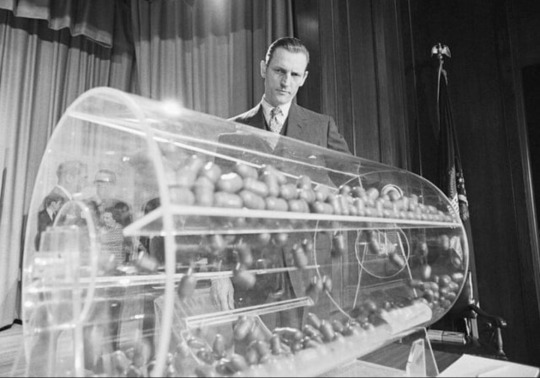
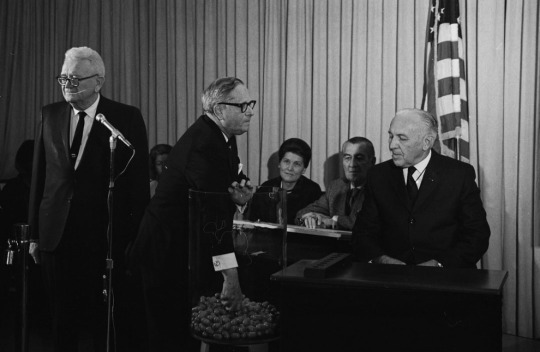
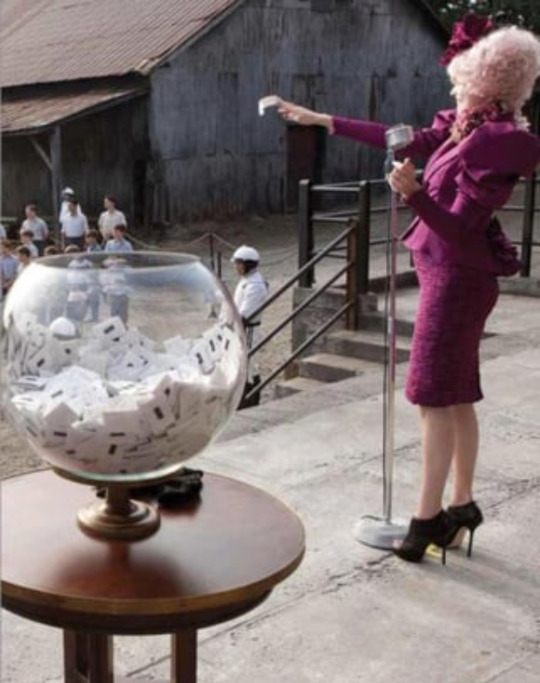
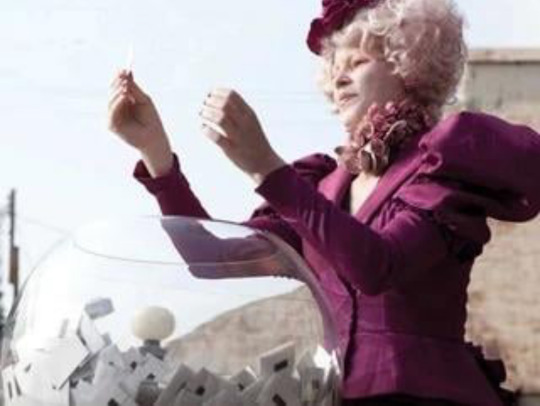
Reposting my most popular Reddit post from r/Hungergames!
Could the Reaping in the Hunger Games be inspired by the 1969 Vietnam War lottery draft?
As we know, Suzanne Collins was inspired to write the series after flipping through tv channels, surfing between the Iraq War and reality tv and realizing that the lines became blurred. Collins’s father served in the Vietnam War, and I’m sure she heard many stories from him. In 1969, the Vietnam War was raging and its unpopularity was being felt all around the USA with growing anti war movements. Because of this, a draft was instated, and here’s how it worked.
366 blue capsules in a jar, one for each day of the year (leap year included). If your birthdate was drawn, congratulations son! You’re first in line to serve the empire. The first date drawn was September 14th, and the last was June 8th. They did this again in December, with letters instead of numbers. The last draft lottery was in 1975, and from 1965-1972, over two million men were forced to fight because of this. There are strong parallels between the Vietnam lottery and the Reaping. During the Vietnam War, poor, uneducated men were more likely to be chosen, as the rich could pay their way out of service. Much like the impoverished Districts being unable to resist. The Hunger Games is a much deeper series than some people give it credit for. It explores issues such as imperialism, propaganda, capitalism in decay, and revolution. It’s not just “some kids story.” It’s even more radical than we remember. Reading again as an adult has been incredibly rewarding. The imperial core (USA, UK, Japan, Canada, etc.) is the Capitol. The imperial periphery (Iran, Vietnam, Cuba, Yemen, etc.) are the Districts. The truth is stranger than fiction.
#effie trinket#hunger games#the hunger games#everlark#history#dystopian#anti capitalism#the truth is stranger than fiction#vietnam war#reaping day#suzanne collins
191 notes
·
View notes
Text
The Canadian Clarke AU - The Draft Lottery and the Move to Canada
This post concerns events that took place in 1970, 1971, and early 1972. Skip the first heading if you don't want an explanation of the relevant real-world info:
Background:
The Vietnam War had technically been going on for most of Dennis's life and it escalated in the 1960s, as did many Americans' resistance to the draft. From 1969 through 1972 the U.S. was drafting young men into the military through a lottery system. The function of the lottery was to assign a random number, ranging from 1 to 365 (or 366), to every day of the year, namely to every possible birthday. Each year, the numbers were drawn in an event publicized through every media outlet. The assigned numbers determined the order of who would be drafted in the following year: the first number called was 1, and the numbers increased until the cutoff the next year (December 31 unless otherwise extended), and then the next lottery would be drawn if needed.
To be clear, if you were a young man in the correct age bracket targeted by a given year's lottery, the random number assigned to your birthday told you how likely you were to be drafted the next year. The draft calls started with 1 and worked their way up throughout the year. The first Vietnam-era lottery, held in 1969, called men during 1970, and at the end of 1970 the highest number called turned out to be 195. That number sort of set the standard for individuals concerned about being drafted in future lotteries, although the numbers in following years never reached that high again.
So that was me trying to explain the relevant parts as clearly as I could, but here is the U.S. government webpage on the topic, with charts of the numbers assigned to every birthday in each year's lottery: Vietnam Lotteries | Selective Service System : Selective Service System (sss.gov)
The effect on Dennis:
Dennis was born on April 29, 1951. The draft lottery held on July 1, 1970, targeted men born in 1951. The number randomly assigned to his birthday was 111 out of 365. In 1971, number 111 was drafted, the highest number called being 125.
My best guess is that Dennis would have received a notice of induction into the military towards the end of 1971. Obviously there's no reason to assume he is a military member in canon, but at the same time there's no other canon-supported reason to believe that he would have grounds to be excused from the draft in real life, so that's why this AU exists.
Story:
In 1970, the Clarkes of course know that there is a chance that 19-year-old Dennis could be drafted next year. On the first day of July, the family watches and listens to the lottery broadcast as the numbers are called. Dennis is assigned number 111. It is not high enough to keep them from worrying. It's only halfway through 1970, and the previous lottery is still underway; no one yet knows how high "high enough" is, but the numbers climb as the year goes on, and when the previous lottery expires after reaching 195, they can reasonably fear that Dennis's number will be snatched up before the end of the year 1971.
Cue the Clarkes spending a year and a half in anxiety that Dennis will be forced into the military at age 20. He will perhaps be sent to the war in Vietnam and potentially never make it back home, like thousands of soldiers already - perhaps even a few they used to know. They stew over it, but for the sake of Megan in particular they rarely speak of it out in the open. The issue is merely added to the pile of mounting pressure created from the failing factory and, once October comes, Megan's increasingly disturbed behavior and whatever else.
(Note that these details are still open to adjustment, I'm always learning new info.) Early in 1971, Dennis has a pre-induction physical examination, which basically works as a head start to establish that he's eligible to be drafted when/if his number comes up. Bad news for him: he passes, and the military officially classifies him as 1-A, fit for military service if he gets called.
Then there's a point soon after when Anne puts together a letter to the draft board inquiring about the possibility of him getting conscientious objector status, but James makes sure it is never sent. It's not a completely unreasonable fear that the letter would only bring attention to Dennis and potentially get him a draft order sooner or even prevent him from getting completely overlooked if there was any tiny chance of that happening.
In November, Dennis receives an order of induction in the mail. He is given a certain date on which he is required to report and be sworn into the military and then be shipped off to basic training immediately, a date that's probably only a month or less away. It seems Dennis doesn't have a choice, except - there is always a choice, if the nation's many thousands of war resistors, including the ones fleeing to countries out of reach of the U.S. government, have proven anything.
James knows what he wants. It's no secret that he has always hated this war and its politics; he has two young sons, his sons, and they aren't going off to die in Nixon's war on his watch (no he doesn't care that President Nixon didn't start the conflict). In line with his usual m.o. of outwardly ignoring problems and hoping they go away, James insists that they ignore the draft notice, end of story. Maybe the draft board won't follow up on it. If they do, well, he'll take care of it then.
For Anne, it's more complicated. If your country calls, it's a duty to answer, and on a practical level Dennis does not have any other legal options. Of course she doesn't want to see him in a war, and if they had acted earlier he might have had a chance to join the reserves or something, but it's too late for that now, so why prolong the inevitable? The best thing now is to prepare for the worst and hope for the best like everyone did in the wars of her generation and every generation before.
Dennis himself is mostly unsure about what he should do; all over the country there's all sorts of clashing opinions to reckon with and the war is still very confusing, even though lately he couldn't help but tune in to more of the discussions, knowing that it was likely only a matter of time before it all affected him. But one sure thing is that the negative publicity and extensive media coverage of this war leaves no room for heroic fantasies, and it would be nice to not end up numbered in one of the daily casualty reports on the nightly news. So if dad says he doesn't have to go, then... he doesn't want to go. And then, too soon for any of them, the date passes when he was supposed to report, and he didn't go.
So on January 16, 1972, the family is in limbo. They don't know what's going to happen next, and they can't really ask around to find out. Dennis is breaking the law, and if the wrong person finds out he's knowingly ignoring an induction order, they might inform the authorities and who knows what would happen then. The one thing they all know is that Dennis's days with the family are numbered - realistically, it's only a matter of time before the draft board doubles down on the matter. The only options the Clarkes see are for Dennis to join the military, or pack his bags and sneak out of the country.
At the start of February, they are driven to action. It's a Wednesday when Dennis gets a second notice from the draft board with a new induction date; it serves as another chance in case he missed the first order, but it's also a warning if he's been intentionally defying it.
So the Clarkes don't push their luck any further. Dennis has already made his decision to leave the country if it came to that. There's a quick few days of hurried packing and realizing they are thoroughly under-researched and unprepared for what his move to Canada may entail, but that Sunday Dennis's luggage and most of the Clarkes are piled into the family station wagon on the multi-hour trip to Montreal, Quebec. (Only Tanya opted out of the trip, and Dennis will spend the next few years being bitter about that.)
The tension in that car gets stronger and stronger as they approach the border. They've heard tell of so many other draft dodgers escaping to Canada, but were those Americans privy to some insight the Clarkes don't have? They don't know if they will be refused entry if they pick the wrong point of crossing, and they can't even be sure there isn't a chance that Dennis could be arrested on the spot if they give the wrong answers to the wrong questions.
But the crossing is unexpectedly smooth after all. They're visitors, they tell the border official, and they make a quick and quiet entry into Canada.
There isn't much for the Clarkes to do when they reach Montreal. It's a big city, and somewhere there's folks who help people like Dennis, but James and Anne hardly know more than Dennis himself does. "Find the Americans" is the best advice they can give. They have to leave in a few hours; tomorrow is a workday. They find a cheap room for Dennis to stay in and give him some cash, and they promise to help him with the immigration process when the time comes. They can mail him whatever papers he needs. They can mail him any of his possessions if he left something important back home. They can mail letters, and he can write back.
"Call us in the morning," they tell him, and several hours later the Clarkes are down one member on the return trip to Little Hope, while Dennis is left by himself in a hotel room in Montreal with some very dim-looking prospects and no idea what to do next.
--
Aaaand that's the start of the AU. Congratulate yourself if you read this far, and here's the timeline for good measure 🙂
#too many words lol but there is way more that has to be explained#i'll cover his first few years in canada in other posts eventually#canadian clarke au#little hope au#dennis clarke#the clarke family#the dark pictures anthology#little hope
18 notes
·
View notes
Note
What's your sticky spot for the old Hollywood fic? It's so interesting to me where things get stuck.
Thanks for the ask! And also for the incomparable @booksandabeer, who asked after this as well 😘
I can’t let this Stucky Old Hollywood idea go—the aesthetic alone!
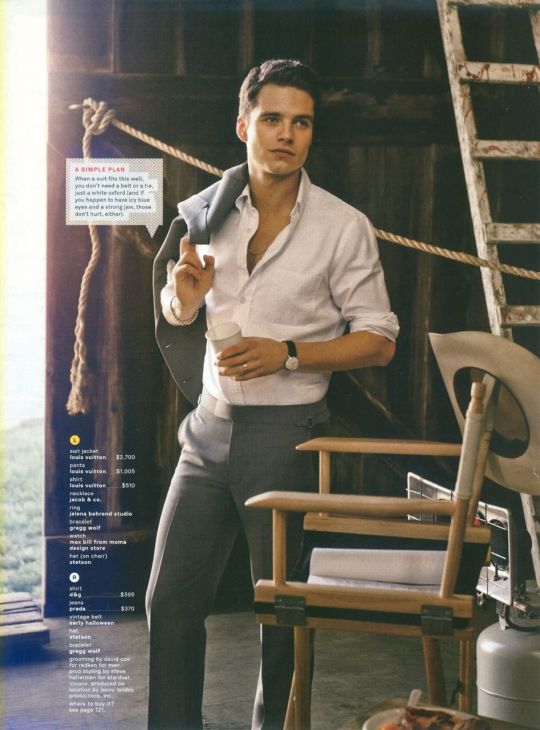
I’m not an AU writer so the only way I could do this concept is as canon divergence where the Barnes family moves to Los Angeles rather than Brooklyn when Bucky is a kid—and Bucky becomes a child star. So Steve and Bucky don't meet.
I’ve been slowly working out the concept and completing the foundational research, but lately I’ve fallen into a really meta place around the question: would Bucky still have been drafted?
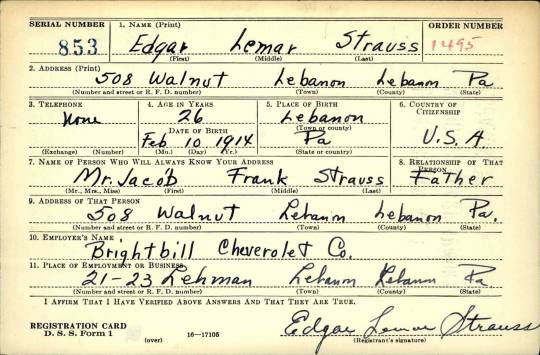
The quick version of the historical context is that, unlike later drafts and most iconically the Vietnam draft, WWII-era conscription was conducted by local boards that assigned each registered man a lottery serial number (not the same as an army serial number) after all the completed registration cards were shuffled.[1] Bucky would have registered in October 1940 under the Selective Training and Service Act[2] and could have been called up in any of the three drafts: 29 October 1940, 17 July 1941, 17 March 1942.[3] If Bucky was in a different part of the country—and in consequence subject to a different local board’s instance of this random number assignment process—odds are he would have been assigned a different random lottery serial number, which means he could have been selected in an earlier draft, the same draft or not at all. And there’s no logic for how he would have ended up with the 107th.
And here’s where it gets meta. Because narratively Bucky is drafted to be a foil for Steve, who can’t join the military despite desperately wanting to. And Bucky becomes a POW to motivate Steve into the action that transforms him from a performer to a combatant, thereby achieving Steve’s—and the narrative’s—vision of idealized masculinity. And Bucky falls off the train to push Steve into more radical action against Hydra, which culminates with him putting the plane into the water. Bucky isn’t doomed by the narrative. He’s doomed by Steve’s narrative. In the original work, the pre-TFATWS MCU, Bucky’s suffering only has narrative meaning because of its effect on Steve. And you can argue that things only occur in a story if they have narrative meaning.
Without having to be a plot device and motivator for Steve, Bucky is theoretically relieved of the narrative requirement of being a POW. He wouldn’t have to fall off that train.
But, at heart, fanfiction is a rejection of this model of narrative meaning. As soon as you create a Bucky-centric reading or write a Bucky-centric version of canon, then his suffering has the potential for intrinsic narrative meaning. And Bucky’s story of victimization and heroic resilience speaks deeply to a lot of people, myself included. Bucky lacks the protagonist’s halo of always beating the odds, of the doors always closing just after safely jumping through, of being able to close that gap and grab the hand reaching out for him, and of being looked for by friendlies and discovered as still alive in the cold. Of course, if Bucky was a protagonist, the serum would have kicked in faster; he would have broken his own restraints; he would have rescued himself and the remnants of the 107th.
But that’s not Bucky’s narrative function.
Bucky is so fascinating to me because his story doesn’t follow the pattern of male-hero-protagonist. He has a sympathetic villain’s narrative arc but then refuses to become a villain. So, in this revisionist analysis, Bucky is doomed and saved by his own narrative. And this is why I’m leaning toward Bucky still being drafted, even if his experience of the war plays out differently, but not making him a POW so long as the part of Bucky’s story that's about being controlled and dehumanized by larger forces can be transferred to a different part of the narrative.
I’ll sign off with this piece of inspiration about Mickey Rooney, an iconic child star of the era:
Mayer naturally tried to keep all his child actors in line, like any father figure. After one such episode, Mickey Rooney replied, "I won't do it. You're asking the impossible." Mayer then grabbed young Rooney by his lapels and said, "Listen to me! I don't care what you do in private. Just don't do it in public. In public, behave. Your fans expect it. You're Andy Hardy! You're the United States! You're the Stars and Stripes. Behave yourself! You're a symbol!”[4]
Sources:
1. World War II Selective Service Draft Registrations
2. The Selective Training and Service Act of 1940
3. Wood, Richard G., comp., Records of the Selective Service System, 1940-47 (PI 27); National Archives (NARA), 1951.
4. Wayne, Jane Ellen (2005). The Leading Men of MGM. Carroll & Graf Publishers. p. 246
#stucky#stucky meta#bucky barnes meta#thanks for the ask!#bucky barnes#bucky barnes needs a hug#old hollywood au
60 notes
·
View notes
Text
Which twisted wonderland character would be drafted in the Vietnam war?
Part 3









Link to part 1: https://www.tumblr.com/blushingpotato58/723504640716603392/would-your-draft-number-have-been-called
Link to part 2: https://www.tumblr.com/blushingpotato58/723526258531680256/would-your-draft-number-have-been-called
#I adore this lineup so much#the absolute hilarity of idia being drafted#him along with azul are the worst ones that could’ve gone#I also adore that all of Diasomnia except for lilia#because bros had enough war in his life got drafted#if rook was also drafted they would’ve easily won#I just know vil would be complaining and crying that epel got drafted#he would be distraught because epels just a little guy#anyway hope you enjoyed this cause I sure did#twst#twisted wonderland#vil schoenheit#epel felmier#rook hunt#Idia shroud#ortho shroud#lilia vanrouge#malleus draconia#silver twst#sebek zigvolt
22 notes
·
View notes
Text
SOMETHING BEAUTIFUL
Chapter 00 / Broadway Baby

Love Astor was born in 1951 and raised in New York, New York. The daughter of Robert 'Robbie' Astor, the business mogul, and June Koch, the film star. As a child, Love made a name for herself on Broadway, but as a teenager, she delved into the world of rock 'n' roll.
LILIAN WILLIAMS (former acting coach, the Williams School of Musical Theatre): Oh, yeah, I remember Love Astor.
We met for the first time in ‘55, probably. ‘56 at the latest. Into the school came her mother, June (Koch), dressed to the nines. Think Jackie Kennedy. There’s no way that woman wasn’t going for the First Lady look. Honestly, you might have mistaken her for a politician’s wife rather than an actress. At her side was this beautiful little girl. “This is my daughter, Love,” June said, nodding to her look alike. Love, like her mother, had this long, thick black hair that fell all the way down her back. Her eyes were this stunning sea green color. To this day, they still remind me of the beach. And her cheekbones were sharp, so sharp the rich pay to have theirs come even remotely close.
“What can I do for you, June?” I asked, expecting her to request more lessons for herself, but no. Imagine my surprise when she said, “Love here has the potential to be a great singer, but she needs to be trained. You could help refine her voice, could help turn her potential into skill.”
It came as a surprise, because Love was so young at that point, no older than four. Most children start theatre training between six and eight, but June wanted her children to be like her and Robbie: extraordinary. Usually, I’d refuse to train a child that young, but then June had Love sing one of Judy Garland’s songs. “Over the Rainbow,” if memory serves, and her delivery was smooth, polished. I thought, This kid is going to be somebody when she’s older, and I . . . I want to play a part in making her somebody.
So we started training, and by the mid ‘60s, she was getting casted on Broadway. Playing a part in Camelot, Fiddler on the Roof, Dames at Sea, and Cabaret. A few of the parts were written for older women, but the ‘60s were a different time. No one batted an eye at a teenage girl being cast as a woman. And Love, she put everything she had into each and every part, earning her the love and attention of many. Hell, not even critics had anything bad to say about her . . . until her brother died.
─── ✧・゚: *✧・゚:* ───
On December 1, 1969, the U.S. Selective Service System conducted a lottery to determine the draft order for 1970. Stephen Astro, born March 14, 1949, was assigned lottery number 12.
LOVE ASTOR (singer, Daisy Jones & The Six): For the first eighteen years of my life, I lived at the whims of my mother. “Sing, Love. Eat better. Try harder at school,” she commanded, and I would without hesitation or reserve, because I had been made into a sponge, made to take in whatever orders she wanted. Then, my brother, my dearest friend in the whole world, got drafted, and it changed things. Stephen promised that he would return from Vietnam, that he’d be back before we even realized he was gone, but that was a lie. For eight months, there was radio silence, then word came that he died in Laos.
There was no body, so we buried an empty casket. And that . . . that broke me. I couldn’t bear the thought of him forever being lost, so I looked for something to quiet my mind, to numb the pain. That led me not only to the rock scene but to everything that came with it — drugs, alcohol, sex, and everything in between.
DALE WRIGHT (former bouncer, The Blue Room): I worked at The Blue Room from 1969 to 1974. It was a real sketchy club, bringing in folks from the seediest pockets of the boroughs, but goddamn was there good music. It (the music) drew in tons of better-off folks whose names I don’t remember, but I remember Love Astor. The first time I saw her, I was kicking out a junkie and in walks this bright-eyed, super skinny girl. She had the longest hair I’ve ever seen, and it was tied into some odd braid about her head. Her smile too . . . her smile was something else. It made you feel like you were the only person in the world. She was with some guy who was probably three times her age. He looked at her like she’d hung the moon, but she shed him by the end of the night and left on the arm of a roadie.
After that first time, she started coming in more and more. Four or five times a week, and each time, she’s make it a habit to talk to me and the rest of the club staff, to get to know us. Love was a real people person, you see. She was always happy, and wanted those around her to be happy, too. There was an innocence to her, a naïveté, which was why I made sure to keep an eye out for her. God knows no one else there was.
─── ✧・゚: *✧・゚:* ───
Word Count: 893 words
© Meropegaaunt 2023
#daisy jones and the six#daisy jones headers#billy dunne#camila dunne#graham dunne#karen sirko#sam claflin#blanca soler#simone jackson#suki waterhouse#warren rhodes#eddie roundtree#fanfic#fanfiction#writing#meropegaaunt: something beautiful
41 notes
·
View notes
Text
Spent yesterday afternoon with family. My dad is normally not very talkative but under the right circumstances opens up. I'd never really thought about it before but he reached adulthood towards the end of the Vietnam War. And he went straight to college, and there was an exception for college students -- his freshman year. His sophomore year they got rid of the college exemption.
And ended up not actually inducting anyone. My uncle asked what he would have done if his lottery number got called in. He said he would have shown up but tried to avoid getting sent to the front lines. My uncle (younger, so it was moot by the time he turned 18) said he would have left the country rather than get drafted. (I don't think he was taking a principled stance, I think that was a pure self preservation thing.) A huge issue at the time was the voting age, "you're old enough to kill but not for voting", at the start of the war you could be drafted at 18 but couldn't vote until you're 21. Due to public pressure the voting age got lowered to 18. (And the draft ended. Although as far as I can tell no one has ever mounted a serious challenge to the idea that 18 year olds shouldn't be able to volunteer for the army.)
2 notes
·
View notes
Text

THE MEMORIAL DAY PLAYLIST
Because I have a platform for it with this blog, and because the blog focuses primarily on music, I wanted to do something for Memorial Day. I grew up in the shadow of the Vietnam War. I never served. I had a draft card, and a lottery number, but the government ended the draft just months before I would’ve been called. My number was a low one, so it’s likely I’d have been drafted, and I would’ve served rather than seek a deferment. The war ended soon after.
Though I never served, that war compromised the futures of every member of my generation. The money that might’ve been spent at home was wasted in a futile war we never had any chance of winning. It undermined our faith in the military, and in our government and elected officials. The veterans who survived that war were, at best, ignored and forgotten, and, at worst, betrayed, mistreated, and robbed of the dignity of having served their country in what they believed was a noble cause. Even today, nearly 50 years after that war ended, the Vietnam Veteran is the least recognized, and the least celebrated of any group of soldiers who served in any war in this nation’s history. There were 58,220 men and women soldiers who died in that war. The list of casualties, however, military and civilian, is incalculable.
So, I get angry every Memorial Day when I see the flags wave, and the veterans of all the other wars honored, yet again, for their service while those who served in Vietnam are shoved aside, or ignored altogether. I wanted to bring that fact to light in this space by compiling a Memorial Day Playlist of the songs that impacted my thinking about Vietnam, The Cold War, and about all wars. The list was getting so long that I finally had to stop. But on Memorial Day, if you need a reminder that the day is not for celebration, but for grief, you have only to listen to these songs, and remember one thing: if your government tells you that fighting a war is necessary, it is your duty as a citizen, and a patriot to question authority. If there is another way, questioning authority is the only way a war might be avoided. If, however, a war becomes necessary, and all other avenues have been exhausted, then fight knowing that dying is the ultimate price of freedom, and that never, ever is war a cause for celebration.
Who’ll Stop The Rain – Creedence Clearwater Revival
War – Edwin Starr
Wooden Ships – Crosby, Stills & Nash
Once I Was – Tim Buckley
Feel Like I’m A-Fixin’ To Die Rag – Country Joe & The Fish
Last Train To Clarksville – The Monkees
What’s Happenin’ Brother – Marvin Gaye
Where Have All The Flowers Gone – Kingston Trio
Waist Deep In The Big Muddy – Pete Seeger
Masters of War – Bob Dylan
Grover Henson Feels Forgotten – Bill Cosby
Find The Cost of Freedom – Crosby, Stills, Nash & Young
Military Madness – Graham Nash
Four Days Gone – Buffalo Springfield
Vietnam – Jimmy Cliff
The Unknown Soldier – The Doors
The War Song – Graham Nash & Neil Young
2 + 2 – The Bob Seger System
Born In The U.S.A. – Bruce Springsteen
Save The Country – The 5th Dimension
War Pigs – Black Sabbath
Eve of Destruction – Barry McGuire
Galveston – Glen Campbell
Give Peace A Chance – John Lennon & Yoko Ono
Requiem For The Masses – The Association
Sky Pilot – Eric Burdon & The Animals
Machine Gun – Jimi Hendrix
With God On Our Side – Bob Dylan
Bring The Boys Home – Freda Payne
Child In Time – Deep Purple
Rich Man – Climax Blues Band
Draft Morning – The Byrds
Daniel – Elton John
People, Let’s Stop The War – Grand Funk Railroad
Sam Stone – John Prine
Sweet Cherry Wine – Tommy James & The Shondells
Slip Kid – The Who
A Hard Rain’s A-Gonna Fall – Bob Dylan
Blowin’ In The Wind – Peter, Paul & Mary
Handsome Johnny – Richie Havens
I Don’t Wanna Get Drafted – Frank Zappa
Peace Train – Cat Stevens
Invisible Sun – The Police
The Universal Soldier – Donovan
One Tin Soldier – Original Caste
Rooster – Alice In Chains
Undefeated – Little Steven
Little Boy Soldiers – The Jam
Games Without Frontiers – Peter Gabriel
Generals & Majors – XTC
Stop The War, Now! – Edwin Starr
Soldier – Neil Young
Washington Bullets – The Clash
Us and Them – Pink Floyd
Land of Confusion – Genesis
Russians – Sting
(What’s So Funny ‘Bout) Peace, Love and Understanding – Elvis Costello
Arlington's Busy - Graham Parker & The Rumour
The Star Spangled Banner – Jimi Hendrix
1 note
·
View note
Text
Anti-war song from my college days. Vietnam war era. I was fortunate that my draft lottery number didn't come up and I was spared a goverment payed trip to beautiful south east asia. I was spared the opportunity of meeting the people there and killing them.
My terrorist reading in College were books like The Law by Bastiat and Economics in one Lesson by Henry Hazlett. they led me to be a Libertarian, anti big goverment and anti war activest. I also read the Communist Manifesto to get both sides of the argument, and even back then was wise enough to see through Marx's stupid ideas. It is a shame that so many young people today have fallen for all that Socialist nonsense. At our college graduation in 1970, below, my wife and I both wore white armbands to protest the war. I respect the brave men that went to war, but I am thankful I wasn't one of them. The war was pointless and we owe all the Vietnam vets an apology for sending them to fight in it. I'm very grateful my name is not on the wall, with so many of the less fortunite men of my generation.


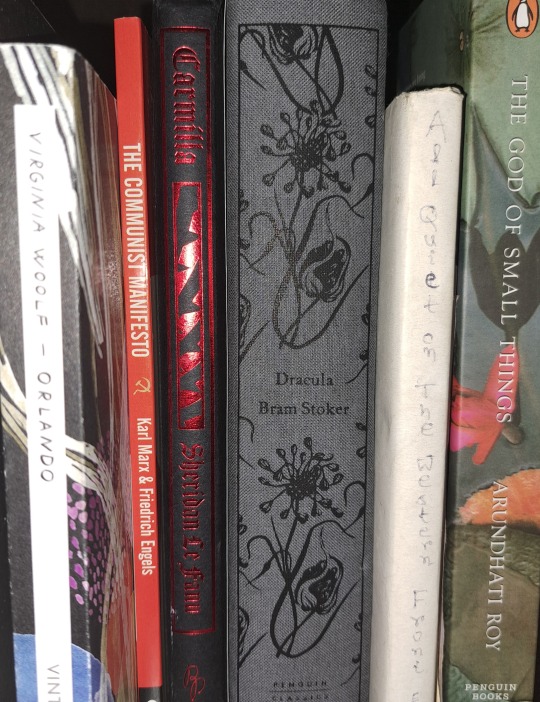
the 'Mama, the Government says I'm a Terrorist' collection.
Where have all the graveyards gone Gone to flowers, every one When will we ever learn? When will we ever learn?
29 notes
·
View notes
Text
Vietnam Lottery Number Draft Date 25 April 2021
Vietnam Lottery Number Draft Date 25 April 2021
This Lottery number expresses my personal opinion only. Playing or biting lottery lucky number involves risk, and is not suitable for all investors. I am not responsible for any losses incurred due to your bit or anything else. Wining number are random and we not warranty will be win by those number. It depending on the luck of the buyer, choose to buy only. It’s just a lottery number guide.…

View On WordPress
0 notes
Text
if chop top was drafted into the vietnam war (which presumably he was because i don't think it's very likely at all that he would willingly enlist) then if he was drafted through the 1969 lottery, then it wouldn't have just been his number that was called. him and nubbins have the same birthday.
imagine their number being called and their draft cards arriving and they're both furious because they don't want to go and fight a fucking war, only for nubbins to be dropped when he fails the psychological/mental health assessment.
so they went from being drafted but at least they'll both be going, to chop having to go alone. part of him is relieved that nubbins will be safe at home, and part of him is never going to forgive the universe for fucking him over like this.
#chop top sawyer#my beloved#unfortunately#nubbins sawyer#dont tell me they dont think about draft dodging#theyll run away to mexico#but that was never going to happen#and bobby leaves#and never sees his twin again#and hes never called bobby again#why lord have you given me feelings about this gremlin#bobby sawyer#pre-nam chop top#texas chainsaw massacre 2#tcm 2
80 notes
·
View notes
Text
Paul Williams on His Regrets and Career By Donald Liebenson
“Bugsy Malone is like nothing else,” Roger Ebert wrote in his 1976 three-and-a-half-star review. “It's an original, a charming one.”
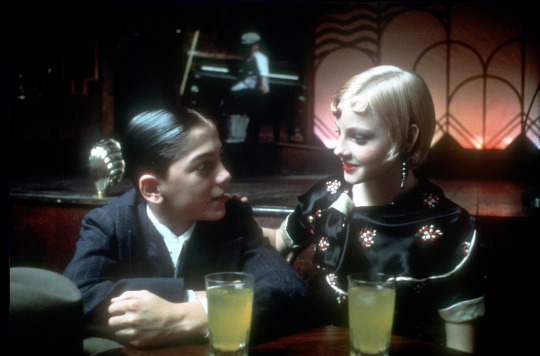
Alan Parker’s directorial debut, a one-of-a-kind gangster musical acted out by children (including Scott Baio in the title role and a then-13-year-old Jodie Foster as a sassy nightclub chanteuse), was an early career triumph for Paul Williams. Williams is everything that he wanted to be: an actor, an Oscar-winning songwriter of era-defining hits and composer of iconic movie scores. He’s something else, too: sober. Earlier this month he celebrated just over 30 years of sobriety. “When I got sober, the career I thought I had been gone for 10 years,” he says. “I feel like Lazarus; I’m 80-years-old, and I feel like a tired 34.”
But he’s ebullient talking about BUGSY MALONE, a cult favorite in the United States, but in its native England, it is something of a viewing rite of passage for children, thanks in part to a 1980s stage adaptation by Micky Dolenz. The film itself won four BAFTAs, including Best Screenplay and Best Newcomer and Best Supporting Actress for Foster. Williams was nominated for two Golden Globes, including Original Score and Original Song.
He has completed a new musical, Fortunate Sons, about how the Vietnam War draft lottery affects two households. His last major acting role was as ex-lawyer and informant JT on two seasons of the Amazon series, Goliath. “I’ve always said I’m a pretty good songwriter for an out-of-work actor,” he jokes. “Acting is where I got my start.”
Where in the process did you get involved with Bugsy Malone?
Paul Williams: BUGSY MALONE began as a bedtime story Alan made up for his kids. Every night he put his kids to bed, they said, ‘Tell us more about Bugsy tomorrow night, dad.’ So maybe the answer to that question is that the headwaters of BUGSY MALONE is Alan’s love for his children and his great love for the traditional American gangster film. He found a place where those two things would meet in a way that was really unique.
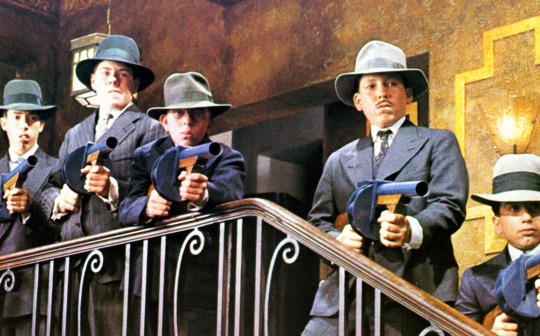
How did Bugsy Malone come to you?
PW: Alan Parker liked my songs, but I don’t know where he got the idea to approach me. It was around the time of A STAR IS BORN (for which he co-wrote the Oscar-winning song “Evergreen” with Barbra Streisand). He sent me a batch of beautiful color drawings of the cars, the splurge guns and the sets. Then he sent me the script, and I loved it. I was playing Vegas a lot and when I agreed to do it, he came over to talk to me. I was opening for Liza Minnelli or Olivia Newton John, I don’t remember who. Alan and I sat down at a deli, drank coffee and I was just singing bits and pieces of songs that I thought would be good ideas. I thought we needed to open with a song about Bugsy. It poured out of me. When the marriage is right, that seems to happen with me.
What was your own connection to American gangster movies? Were you a fan?
PW: Oh, my god, I was a huge Humphrey Bogart fan. One of the great times that I ever had was doing THE CHEAP DETECTIVE, because I was playing Elisha Cook’s role from THE MALTESE FALCON. As a little boy, I knew his name before I knew Santa Claus. I remember when I first came back to Hollywood to try and make it as an actor, one of the first things that happened was I walked into a drug store just as (character actor) Royal Dano was walking out. You’ve seen him in a hundred movies. I said, ‘Hiya, Mr. Dano,’ and he snapped his head around and said, ‘Hello, young man.’ I told that story on Carson, and I got a letter from Royal Dano. He said, ‘Although I don’t remember meeting you, it seems to me you were thinner then.’ I love that.
How did you approach writing the songs, because they are songs being lip-synced by children, but they are not children’s songs.
PW: The script is the Bible. The two basic tasks a songwriter have are to move the story ahead and to display the inner life of the characters. Alan Parker was similar to Jim Henson in that the rule of writing was to not write down to kids, but to write accurately for character and story. The characters Alan wrote were so strong; they are archetypes of the great Warner Bros. characters. Bugsy was John Garfield meets Humphrey Bogart.
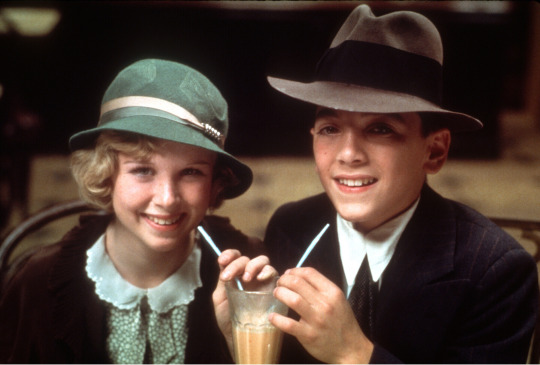
Where did the idea come from to have the child actors lip-sync to adult voices?
PW: They got kids that could act, they got kids that could dance, but the songs had intricate rhythms and to find kids who could sing them was a challenge. I thought that if the automobiles are these weird little hybrids that make the sound of an engine but are being pedaled, and the guns shoot cream, then why couldn’t the kids sing with adult voices? It would have the feel of an animated film. It solved the whole problem. The one regret I will have my entire life is that I put another (singing) voice in Jodie Foster’s mouth; one of the great actors in American film history. That’s a terrible legacy (laughs). I did that with (the character) Beef in PHANTOM OF THE PARADISE. I used a guy named Ray Kennedy who had a great beefy voice, but when I heard Gerritt Graham sing later, I thought maybe I should have given him a shot.
This was before your collaboration with Jim Henson and the Muppets. Was Bugsy Malone a project you personally wanted to take on as something your own children could see?
PW: Bugsy Malone is the one motion picture I’ve written songs for that I’ve seen more than anything that I ever worked on, and there’s a simple reason for it. When my wife and I broke up, I would spend the weekend with my kids and I would plunk them down in front of the TV with pizza and, god bless them, they must have seen BUGSY MALONE for years. Eventually, I learned how to talk to my kids and be a sober real dad, but my kids just love BUGSY.
The closing number, “You Give a Little Love,” is Bugsy Malone’s legacy song, much like “The Rainbow Connection” is for The Muppet Movie. It was even used in a Coca-Cola Super Bowl commercial.
PW: That song is pretty much my philosophy. I absolutely believe it. My entire life has proven to me that there is something about the elegance of kindness that has always had a solid return. The core philosophy of BUGSY MALONE is, ‘We could have been anything that we wanted to be/and it’s not too late to change.’
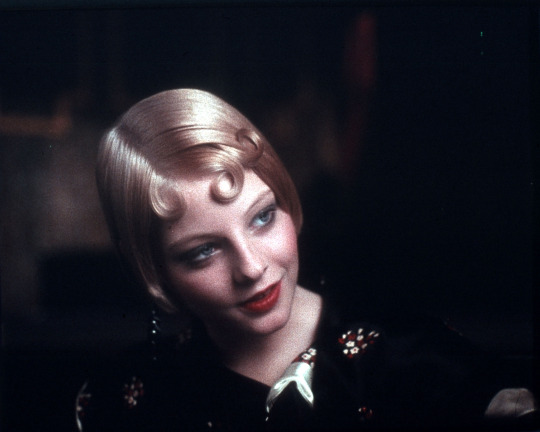
In America, Bugsy Malone received good reviews and is a cult favorite. But it’s huge in England. Why do you think it was so embraced there?
PW: We took it to the stage in the 1980s. Every kid in England, Wales and Ireland, but especially in Great Britain, grew up seeing BUGSY MALONE. It’s like GREASE in this country. Edgar Wright did BUGSY as a kid, which led me to a role in BABY DRIVER.
Where do you rank Bugsy Malone in the Paul Williams canon?
PW: It is probably the best opportunity I ever had in this life to preach a little kindness. It’s probably the best opportunity I’ve ever been given to express the possibilities and probabilities that we could be anything we want to be. I was the runt of the litter from the Midwest; this little dude who didn’t fit into any world. I just absolutely loved music and movies and without thinking twice, I thought, ‘I’m going to do that.’ I hope BUGSY MALONE inspires that for anyone looking up at the screen and is attracted to the possibilities of telling the truth about themselves in a way that helps someone else.
Bugsy Malone is but one chapter in an incredible life and career. Have you given any thought to writing your autobiography?
PW: You know what? In recovery we call it an inventory (laughs). I think I’m at a place in my life where I feel like a beginner, like I’m just getting started. I know how idiotic that sounds at 80, but I want three digits on my driver’s license, and I think the one thing that gives me a shot at that is that I love being busy and doing the things that matter most to me, and that’s trying to tell the truth in a way that helps someone else.
#Bugsy malone#gangster pictures#warner bros#Jodie foster#child stars#child actor#old Hollywood#classic#TCM#Turner Classic Movies#Paul Williams#Donald Liebenson
210 notes
·
View notes
Text
if we go by his first appearance in the revamp of 1987, Jason was either born in 1974 or 1975. the vietnam war was from 1955-1975. men were drafted by lottery numbers.
it just fits.
honestly it’s been my hc for a long time that willis todd was a vietnam vet because i think that explains things and gives a lot more depth to the character and jason’s relationship with him
88 notes
·
View notes
Text
Which twisted wonderland char are would be drafted into the Vietnam war? Part 2







Link to part 1: https://www.tumblr.com/blushingpotato58/723504640716603392/would-your-draft-number-have-been-called
Link to part 3: https://www.tumblr.com/blushingpotato58/723526818998681600/would-your-draft-number-have-been-called
#the absolute irony of kalim being drafted#I know damn well that his family would bribe whoever’s in charge for him to not be drafted#same with Leona and ruggie#Leona cares more about ruggie than he’d liked to admit#twst#disney twisted wonderland#ruggie bucchi#leona kingscholar#jack howl#azul ashengrotto#jade leech#Floyd leech#jamil viper#kalim al asim#twst shitpost
28 notes
·
View notes
Text
♠︎ sodapop curtis and the vietnam war? let’s talk about that ♠︎
♠︎ due to me being an actual gremlin and having far too much knowledge about the vietnam war draft process, i��ve decided to go on a rampage about the idea / fact of sodapop curtis being drafted and sent off to vietnam to die. has this been done before? possibly! but i’m bored and have done far too much research to not share my own opinions. so, here we go: ♠︎
♠︎ i think there’s two things we have to talk about to start this off: sodapop’s age and the vietnam draft process.
♠︎ let’s start with soda’s age: the book’s events take place in the year 1965, and i’m not entirely sure what time of the year this takes place in, but that doesn’t exactly matter. what does matter is that ponyboy describes sodapop as ‘16, going on 17′, which i can only assume means that sodapop curtis was turning 17 in october of 1965. why is that important? only for the sole reason that he would have been 21 years old by december 1, 1969 — the date of the first lottery drawing of the vietnam war. sodapop was draft age, baby!
♠︎ and we can easily get into that and how the draft worked. to make it simple because i’m a lazy bitch, the draft process was a ‘randomly selected’ system. they took each date of the year, janurary 1st to december 31st (including the date february 29) and put each one in a little capsule in a bowl and drew them out one by one, assigning them numbers 1-366. september 14 was the first date drawn out of the bowl and given the number ‘001′. easy to understand. during this first draft process, the selective service system (which will be referred to as the SSS) called for men born from 1944 to 1950. this six year field really called for men who were 18 to 25. so, why does this whole draft process matter?
♠︎ i will tell you.
♠︎ because sodapop was born in 1948 (roughly, i think), he was in the category of men to be eligible to join the ranks and be shipped off into a war! but, sodapop’s number was not called in the 1969 lottery drawing. sodapop’s birthday, october 8, was drawn with a number of 283, and only men with the numbers 001 to 195 were called to serve in the united states military starting in 1970 (though they would have actually gone to get their physical to see if the army wanted them in february of 1970). no man with the number above 195 was called into service.
♠︎ now, you may say: “but kenz, what about those three years of drafts after the first one? couldn’t he have gotten called in then?” and I have an answer!
♠︎ from my understanding of how the sss worked the draft system years prior to the 1969 process, men within certain birth years were considered for the drawing. so what does that mean? ♠︎ it means that during the 1970 draft process, only men born in 1951 were called for service depending on when their number was drawn. like this: ♠︎ lottery of ‘70 — men born in ‘51 ♠︎ lottery of ‘71— men born in ‘52 ♠︎ lottery of ‘72 — men born in ‘53 ♠︎ which put’s sodapop out of the running for having his number called in any of these years, because let’s be honest, the u.s. military was looking for young, fit guys at all times but who isn’t
♠︎ as far as I know, men born prior to these years were not called.
♠︎ now, because i’m a freak and did some stupid math, i came up with who would have gone to vietnam. ♠︎ and oh boy did i have fun with this.
♠︎ we have six four other boys who were viable candidates for america’s lottery draft during 1969 — let’s see them and their ages (circa december 1, 1969) & birthdays; ♠︎ ponyboy curtis — july 22; would have been 18 ♠︎ darry curtis — january 5; would have been 24/25 ♠︎ steve randle — april 15; would have been 21 ♠︎ two-bit mathews — june 5; would have been 21
♠︎ all of them were eligible for the draft, but let’s check out their draft numbers for 1969 (here’s the chart) ; ♠︎ ponyboy curtis — #153 ♠︎ darry curtis — #101 ♠︎ steve randle — #273 ♠︎ two-bit mathews — #028
♠︎ so, according to these fine and dandy numbers, ponyboy, darry, and two-bit mathews would have been called for the draft. tbh darry would have gone bc he was already a hunk of muscle sorry
♠︎ so, in conclusion, steve randle and sodapop curtis would have been the only two of the gang to have not gone to vietnam but they would have had to watch their friends/brothers be shipped off. thank you for coming to my tedtalk :) s.e. hinton can suck my ass ♠︎
♠︎ also this was not meant to debunk anyone’s headcanons or fics i’m just a freak ♠︎
#the outsiders#sodapop curtis#ponyboy curtis#steve randle#darry curtis#two-bit mathews#sorry im this way#this was stupid but i got heated#i should probably put my sources#but this isn't an essay
70 notes
·
View notes
Text
I just watched Forest Gump again, the film has a lot of nostalgia for me. I am actually a few years younger than the Forest Gump character but the events of hi life parallel mine in many ways. I am from the north but my Mom was from North Carolina, I was lucky to have a high enough draft lottery number to miss the Vietnam war adventure. Never was into Shrimping, and never made a fortune. But the story follows events that I remember unfolding in the news. I like the kind of one sided love story. I also lost my true love to death. So the story is very meaningful to me.
"Forest Gump," 1994, Robert Zemeckis. (Primary historical)
Nicole Daniels

I have always had an affinity for "Forest Gump," this film can touch most of us on any level if we are human and have any aspect of the human experience. It is was made as a compilation of fortified American historical truths, some good, some bad. As the New York Times review states, "... popular culture explodes around Forrest, allowing Mr. Zemeckis to contrive a string of Zeitgeist-laden picture postcards. Jenny goes from country girl to hippie to political activist to druggie and onward." It is a perfect combination of heart felt story lines, mixed with important political agendas and stories of the period in which it was made, one being the Vietnam war.
The same year that "Forest Gump" was released South Africa held "its first multi-racial elections after the end of apartheid," ( The people of History,) and ongoing racist and discriminatory history in South Africa, The film highlights a lot of racial issues and one the most beautiful parts of the character "Forest Gump," (played by the actor, famous Tom hanks,) is his tolerance for all races and people. I found this interesting. Whether or not there was an intentional relation by Zemeckis in the ending of apartheid and the racial importance of this film, it sends a message all the same. Below is the article attached to this information.
1 note
·
View note
Text
Deja Va: 2011 NDA Winner Rick Valicenti Recalls Two Iconic Poster Designs
Rick Valicenti is a legendary graphic designer, whose career spans the transition from analog to digital design production. Rick spoke with Cooper Hewitt curator Ellen Lupton about his design process over Zoom on October 23, 2020. Edited for clarity and length.
Ellen Lupton: Rick, where are you?
Rick Valicenti, screenshot from a Zoom call. Rick is smiling and wearing a dark sweater. Behind him, a red car is suspended in the air for repairs.
Rick Valicenti: I am in a garage in Toronto. This is the second day of a fourteen-day quarantine as we prepare to visit my mother-in-law, who is ninety-three years old and in assisted living. We are quarantined in a studio apartment above our friend’s garage.
I created this poster at the start of the 1990 Gulf War war. The poster was for a lecture at the Alberta College of Art, sponsored by Gilbert Paper. When asked to make a lecture poster, I thought “How do I ignore that we just started a war?” My own narrow version of history was the Vietnam war. In college, my draft card number was ninety-eight in a year they called number ninety-three or ninety-five. I wondered, “Man, did I dodge that? Should I have participated in that?” You carry those conflicted emotions if you missed the draft by good luck in the lottery, not bone spurs. The theme of my poster is deja vu, baby! Here we go again! There is a reference to world peace in the typesetting along the bottom.
Poster, Deja Vu, 1990; Designed by Rick Valicenti (American, b. 1951); Offset lithograph on textured white wove paper; H x W: 91.3 × 61 cm (35 15/16 in. × 24 in.); Gift of Ken Friedman; 1997-19-226
EL: How was the image was created?
RV: The image is a photograph created by myself, photographer Corinne Pfister, and her assistant, Michael Pappas. The three of us were just uncorked. We found a model of a World War II bomber, we found a globe, we got some dry ice, we hit some water on it, and we got ourselves fog. Turn on the colored gel and we are done! Shoot a four-by-five color transparency, and it is over. Lay some type down and you got a poster.
Picture the great travel posters by A. M. Cassandre and E. McKnight Kauffer. Their illustrations teetered right on the edge of modernism. You can feel Herbert Bayer in the Bauhaus colliding with these illustrators. They got modernism and geometry but they could not shed themselves. So, they brought this other flare, this illustrative painterly flare. How could I do that? I am not one of those guys. Can Paul McCartney sing Little Richard? No, not really! But he did his version and that is cool. Scream your heart out, man. So, this poster was me doing that—creating a painterly illustration with a camera.
It never mattered to me whether an idea was rendered illustratively or photographically. My ineptitude at illustration allowed me to develop another talent, which is working behind the camera as a director. You do not have to be the guy who clicks the shutter or the person who fills the airbrush. This is the directorial mode of photography. How can we use photography to play in a different realm? Advertising has learned how to do that. How does graphic design do that? We saw Herbert Matter, László Moholy-Nagy, Man Ray, and Nathan Lerner do that. They all used the tools of the moment. I am inclined to use tools of aptitude, which means if you do not have much of an aptitude for it, but you sure like it, try it!
EL: Tell me about your poster for the opera Tannhäuser.
RV: It’s 1988, and I’m on my own as a designer. I’m doing a poster for Chicago’s Lyric Opera, a there’s no budget. Peter Sellers is directing Tannhäuser. I meet with Peter and he is enamored with a picture of Pentecostal evangelist Jimmy Swaggart, crying on TV after he was caught visiting a prostitute in a place with striped awnings.
That photograph is black and white. Swaggart is on TV, crying. Sellers says, “This is my character.” So, I say, “Would I be able to videotape the baritone or the lead tenor and photograph the monitor?” He says, “Sure!” So, that is what we did. I blew up the image of the singer’s face. Underneath, I stretch the photo of the Bible to fill the space. Wow, you can stretch a picture! Now, what can I do with the type? I specify some Gothic type from Ryder Type Gallery. I had them stretch the type to fit the space. But, I say, leave a space for the “S” because a three-letter word that begins with an illuminated letter is sex. And then I add a couple of red dots for the umlaut.
Poster, Tannhäuser, 1988; Designed by Rick Valicenti (American, b. 1951); Lithograph on paper; 91.5 × 61.1 cm (36 in. × 24 1/16 in.); Gift of Rick Valicenti; 1995-73-3
I was as close to the director’s subject matter, his subject matter, as I could be by reenacting it and then using the poster as a document of his point of view. This design was not an affectation. It was pulling the cords and playing those chords that Peter was working with, but doing it through the medium of graphic design. That is when I really could feel a tingle inside, and that is what I wanted to go for in the future. If I do not hit that tingle, then the design is not reverberating strong enough. It does not have everything in play. Something is out of tune. That was a very seminal piece for me.
EL: You were talking about stretching the photograph. Did you stretch the type, too?
RV: We were right at that transition from analog to digital. I was still dependent on the typesetters. Their equipment allowed them to set your type and then fill the space that you defined. I could say, “I have X amount of inches leftover in height and width. Please take this spec and make it fit.” Today, we do that falling out of bed, but back then, you had to explain what you wanted with tracing paper and a red pencil. I would draw the shape I needed to fill, and pencil in the type.
EL: The stretched type is distorted: the horizontals are thicker than the verticals. Was that effect considered ugly at the time?
RV: Oh, yes, those people. Even today, there are those people. You are one of them, I think. I go there, too. There are moments for respecting the beauty of the type designer’s intent, absolutely. But sometimes there is a silly putty moment. It is like filling a pizza pan with pizza dough. You have to work it into the corners.
from Cooper Hewitt, Smithsonian Design Museum https://ift.tt/3oBtncq via IFTTT
2 notes
·
View notes